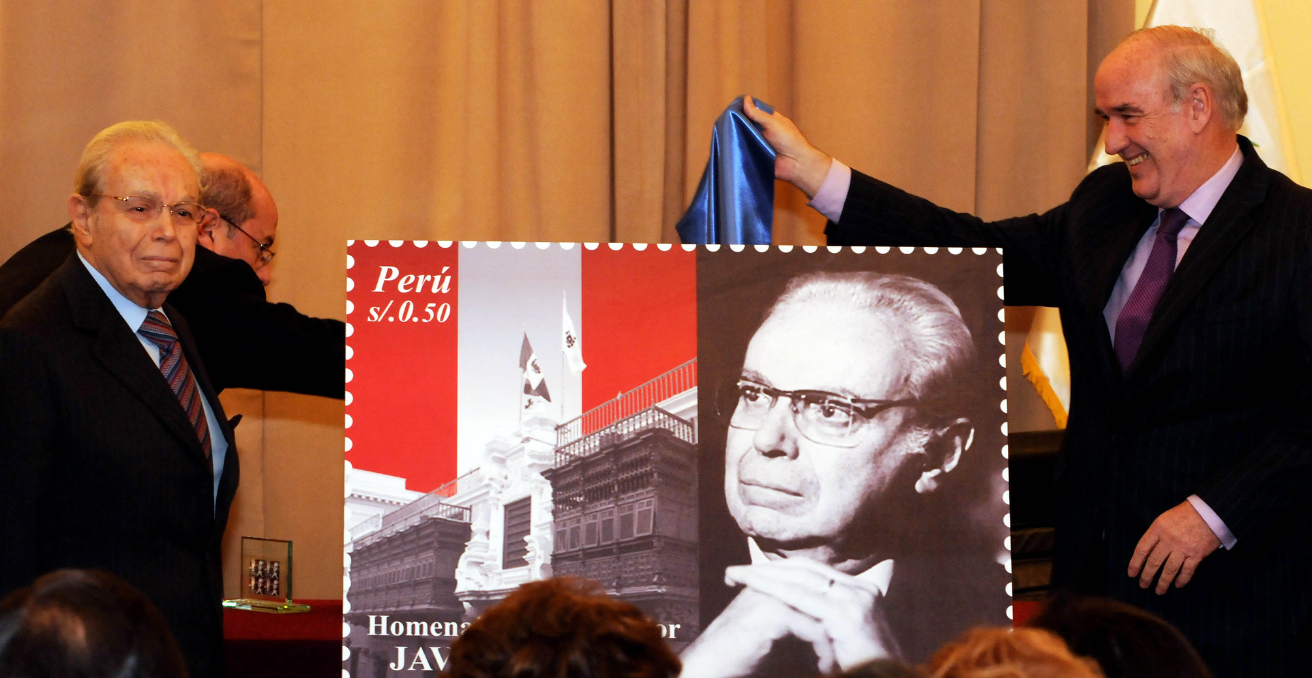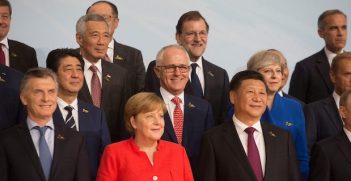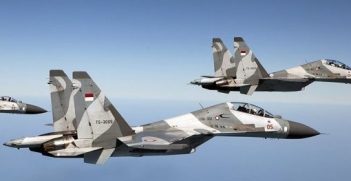Remembering Javier Pérez de Cuéllar’s “Piecemeal” Approach to UN Peacemaking

Javier Pérez de Cuéllar, the former Secretary-General of the United Nations, died this week. His approach to peacemaking remains a useful point of reference for the UN at a time when it appears incapable of resolving major geopolitical crises
When Javier Pérez de Cuéllar turned 100 in January, his current successor as Secretary-General, António Guterres, sent a congratulatory message stating that “I have often reflected on your example and experience for inspiration and guidance.” This sounds like a standard diplomatic pleasantry, but there may have been a more to it than that.
As UN chief from 1982 to 1991, Pérez de Cuéllar, a former Peruvian diplomat, was intimately involved in ending Cold War conflicts from Afghanistan to Central America. Guterres, since his appointment in 2017, has warned that the U.S., China, and Russia risk starting a “new Cold War” if they do not rein in their current tensions. Senior UN officials, who have spent recent decades focusing on ending violence in the developing world, wonder if and how the international organisation can work in a new era of great-power competition.
This February, Guterres warned that a “wind of madness is sweeping the globe” as governments fuel conflict and ignore climate change. “Security Council resolutions,” he added, “are being disrespected even before the ink is dry.” Perhaps unintentionally, he echoed Pérez de Cuéllar, who told the UN General Assembly in 1982—when the Cold War was still very much a reality—that “we are perilously near to a new international anarchy” in which Security Council resolutions were “increasingly defied or ignored by those who feel strong enough to do so.”
Most secretaries-general have lamented the state of the world in similar terms at one time or another. But Pérez de Cuéllar remains an interesting case study in UN leadership because, rather than simply complain about the state of the world, he made a real contribution to resolving crises involving its biggest powers, earning their respect along the way. His efforts included backchannel diplomacy with Russia and China over Afghanistan and Cambodia, and a drawn-out but ultimately successful effort to persuade the five permanent members of the Security Council to find common ground on ending the Iran-Iraq War. His tenure culminated with successful UN mediation in the Cold War proxy conflicts in Nicaragua and El Salvador.
Pérez de Cuéllar was even able to engage directly in mediating disputes involving the permanent Security Council members, something that had stymied his immediate predecessors, U Thant and Kurt Waldheim. Thant had, for example, alienated Washington by trying to play a diplomatic role in Vietnam. In his first year in office, Pérez de Cuéllar attempted to broker a deal between Argentina and the United Kingdom over the Falkland Islands, or Islas Malvinas, after Buenos Aires captured the disputed archipelago. While that outreach failed, Christopher Mallaby, a British diplomat involved in the talks, recalls that the British government was impressed by the “able and impressive” secretary-general.
In 1986, he arbitrated talks between France and New Zealand after French intelligence operatives sank the Greenpeace ship Rainbow Warrior, which had been monitoring a French nuclear test in the Pacific, while it was moored in Auckland. The French government ultimately agreed to pay New Zealand $7 million in reparations. It is hard to imagine any of the permanent Security Council members acceding to such arbitration now.
Why was Pérez de Cuéllar able to pull off such diplomatic feats? In part, he was lucky. Contrary to his bleak assessment in 1982, rapprochement between the Western and Soviet blocs created more space for the UN to help resolve conflicts that all sides wanted to end.
But as Alvaro de Soto, a close adviser to Pérez de Cuéllar, noted in a recent chapter on his former boss in a history of successive secretaries-general and the Security Council, he also brought important character traits to Turtle Bay. De Soto highlights Pérez de Cuéllar’s absolute commitment to impartiality in dealing with the U.S., Soviet Union, and other powers, and his extreme discretion in quietly handling problems like Afghanistan. He also knew when to pick his battles. Rather than throw himself into addressing every conflict at once, he tended to step in only after other diplomatic actors had exhausted themselves. In the case of Central America, for example, he waited for regional diplomacy to lose steam before pushing UN mediation.
Overall, de Soto notes, Pérez de Cuéllar handled Cold War crises “piecemeal” instead of trying to resolve the core differences between Washington and Moscow, “relying on the judicious choice of individual conflicts that might lend themselves to practical solutions… in the expectation that they would lead in the long term to the return of some degree of largely absent cooperation.”
What guidance and inspiration might Guterres and his team take from these lessons today? It is important, of course, not to overstate current similarities or parallels to the late Cold War. Pérez de Cuéllar worked in the shadow of a nuclear standoff, but had the good fortune to cooperate with global powers that were in the process of building bridges and wanted to settle their differences—although, as de Soto notes, the trajectory of this process was hardly clear at the time. Guterres, by contrast, finds himself navigating a very fluid environment in which the major players at the UN are increasingly unwilling to compromise, creating fewer opportunities for peacemaking, even though the spectre of major conflict among them remains relatively remote.
Pérez de Cuéllar’s “piecemeal” approach to peacemaking remains a useful point of reference for the UN at a time when it appears incapable of resolving major geopolitical crises like the ongoing wars in Ukraine and Syria. But the UN may still have openings to address other challenges, such as cementing peace in Colombia, where the landmark peace deal with FARC rebels has yet to deliver on all of its promises, or supporting the current transition to civilian rule in Sudan, where the interests of the U.S., Russia and China may diverge but are not irreconcilably far apart.
The UN cannot solve all the world’s problems, but it can fix some of them as opportunities arise. That is a realistic but nonetheless important lesson to learn from Javier Pérez de Cuéllar’s stewardship of the organisation in a new era of global tensions.
Richard Gowan is UN director at the International Crisis Group, and was previously research director at New York University’s Center on International Cooperation. He has taught at Columbia University’s School of International and Public Affairs and Stanford in New York, and wrote a weekly column on multilateralism (“Diplomatic Fallout”) for World Politics Review from 2013-2019. He has acted as a consultant to the UN on peacekeeping, political affairs, and migration.
This article was originally published on Crisis Group’s website. It is republished with permission.





